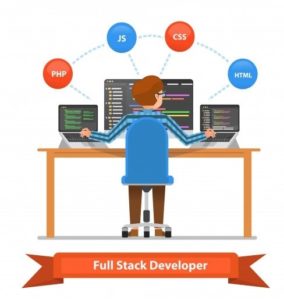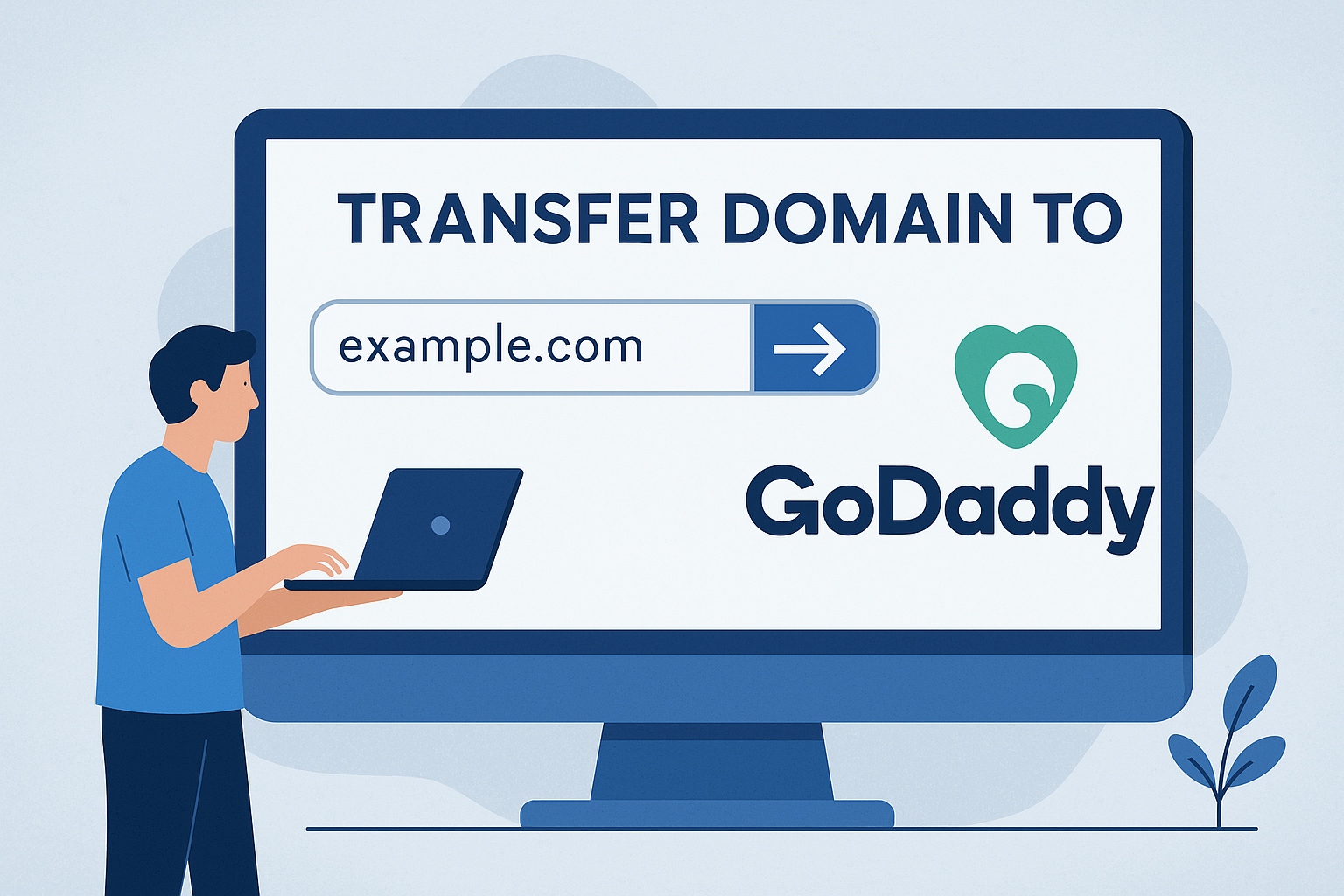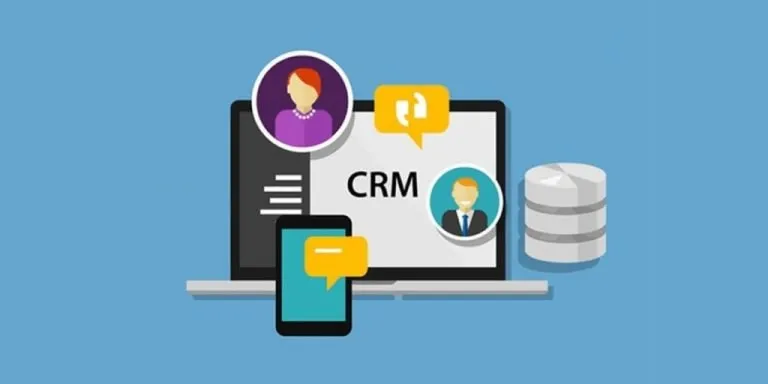Advertising disclosure
Hosting Canada is community-supported. We may earn a commission when you make a purchase through one of our links. Read Disclosure.
How to Hire a Web Developer
 It’s true that practically anyone can build a website these days. Yet web developers are skilled professionals that have the knowledge and expertise to really make a website shine.
It’s true that practically anyone can build a website these days. Yet web developers are skilled professionals that have the knowledge and expertise to really make a website shine.
When you consider the fact that there are literally billions of websites online right now, and certainly at least several hundred within your given niche, having a website that’s good enough isn’t, well, good enough.
In short, for your website to be successful, it has to stand out. Doesn’t it make sense to hire someone who can craft a website worthy of your brand and ideas?
Aside from the fact that web development is a time-intensive and skill-heavy endeavor, hiring a web developer will enable you to:
- ☑️ save time
- ☑️ create more than one website at once
- ☑️ delegate work – this enables you to work on high-level website operations and leave the nitty-gritty coding to pros
- ☑️ save money when you factor in the cash you could make on a functional website compared to the time it would take to learn web development yourself
While hiring a web developer is a great idea for all the above reasons, those all go out the window if you hire someone who isn’t worth your time and money. Because of this risk, understanding how to hire a web developer is crucial.
Identify the Type of Developer You Need
Although “web developer” is a catchall term to describe someone who develops websites and pages, there are actually many different types of web developers. Web developers differ in their expertise, specialization, coding language knowledge, and more.
For example, some web developers know how to make a dedicated e-commerce store. Others might be better suited to creating blogs (see best blogging platforms), specific webpages, tailoring your website code to better display media content on mobile devices, and so on.
Additionally, be sure that you don’t hire a web designer unless that’s specifically what you’re looking for. Although the two terms sound pretty similar, a web developer and designer are distinct occupations.
- A web developer crafts a website from the ground up and deals with the coding requirements for specific pages, content, language, plug-ins, and more. Put another way, developers write code and work with associated tools.
- A web designer is someone who comes up with the overall idea or theme of your website. They’ll determine how the website will look as a finished product, where icons and images will be, and so on. They may also help to create those visual aspects like icons, logos, background images, and more. The crucial difference is that web designers don’t actually build the site (Related: Best website builders).
This does mean that you technically need both skillsets to bootstrap a website from conception to full functionality. You can fill in the designer part yourself if you have the skill or you want full creative control. Otherwise, it may be wise to hire a web designer as well.
Front-end and Back-end Devs
 Arguably the biggest difference between types of web developers is whether they are “front-end” or “back-end”.
Arguably the biggest difference between types of web developers is whether they are “front-end” or “back-end”.
A front-end developer handles all the front-end parts of your website. In common parlance, this means anything that visitors or customers will see on their browser page.
Back-end, in contrast, is everything that a customer or visitor doesn’t see.
This can include your control panel, underlying code that make different widgets or media functions work together, and the detailed code that handles how your website communicates with your database and server(s).
Because of the skill overlap, many fantastic front-end developers also serve a web designer function. They sometimes sell their skills as a complete package, offering to design the look and feel of your website while also coding the front-end stuff.
However, back-end developers are more focused on how your site will work and its underlying functionality. They’re skilled at dealing with technical issues, can help ensure your website is fast and functional enough, and are what most people think of when they imagine a web developer writing lines of complex code.
Either type of web developer could be what you need depending on your current resources, your own skill sets, and who you have working for you at the time of hiring. In most cases, those who call themselves either front-end or back-end developers don’t have applicable skills on the other side of the spectrum because they chose to specialize.
Full-Stack Devs
 You can alternatively look into “full-stack” developers. These are coding professionals who know how to do every part of the process outlined above. That’s right; some full-stack developers can design your site and handle the front-end and back-end coding of the entire project.
You can alternatively look into “full-stack” developers. These are coding professionals who know how to do every part of the process outlined above. That’s right; some full-stack developers can design your site and handle the front-end and back-end coding of the entire project.
Sounds great, right? The real determining factor is their skill set and costs.
Obviously, it might cost a lot more to hire three full-time professionals to handle each of the three aspects of a new website’s development and design. It may be cheaper to hire a single full-stack developer.
This being said, full-stack developers, even though they tend to be very skilled, will take longer to put a website together since they’re only a single person handling all the aspects of the project.
Furthermore, having only one person working on your website means that their skill level is all the more important.
A front-end developer could theoretically fill in for a back-end developer here and there or vice versa. With a full-stack developer, the hiring process is even more important since all the proverbial eggs are in their coding basket.
Freelance vs. Full-Time Developer?
 The last “type” of developer to consider is whether you should hire a freelancer or a full-time developer.
The last “type” of developer to consider is whether you should hire a freelancer or a full-time developer.
Freelancer devs are usually those you hire for single jobs. It’s a short-term assignment and you pay all or some of the costs upfront.
Full-time developers are more like employees for your website. They can also handle the day-to-day management and maintenance of your website.
Either way can work for your project depending on your needs. For instance, if you plan to handle all the website maintenance stuff, a freelancer developer is a great choice. A full-time developer is a much better option if you aren’t going to handle the running of your site every day.
Obviously, complex or high-traffic sites benefit from a dedicated pair of eyes constantly watching them, performing security sweeps, and handling minor maintenance issues than static or low-traffic sites.
Consider Your Budget
 Developing a website (in any of the areas described above) is not an easy task, no matter how relaxed the best web developers make it look. Figuring out how much money you have for web development can be tricky, as you have to balance your internal monetary limitations with a competitive price.
Developing a website (in any of the areas described above) is not an easy task, no matter how relaxed the best web developers make it look. Figuring out how much money you have for web development can be tricky, as you have to balance your internal monetary limitations with a competitive price.
It’s the classic dilemma for anyone hiring a professional for any job. Set your price too low and you’ll only attract poor workers who put out terrible performance. Set your price too high and you might end up blowing through your development budget before your website is even finished.
Here are a few ways to narrow down your budget, presuming you already have an upper limit in mind. If not, look at your overall costs, and come up with a maximum amount you can pay the web developer you’re looking to hire.
Fixed vs. Hourly Pricing
You can pay web developers a flat fee for the completion of a project or by the hour. Both options have merit:
- Fixed price jobs allow you to regulate the cost of the development as your budget evolves. You won’t need to budget for another few hours of work if you and the developer you’ve hired have already agreed to a final price beforehand.
- Fixed price jobs are often better for larger or long-term projects that have the potential to see delays, or that may require a lot of back and forth between you and the developer has things iterate.
- Furthermore, you may wish to consider a fixed price offer with an inexperienced developer, as they typically make a few extra mistakes that may require more revisions. By doing this, you avoid paying them for extra hours they spend fixing up small things you need changed.
- Hourly jobs are often better for small projects or for when you hire an experienced web developer that you know will get the job done. Since experienced web developers need less time to do the same amount of work, they’ll often end up costing you less money on a per hour basis than if you agreed on a fixed price with them.
What about estimates for your hourly rates? Unfortunately, trying to nail down a general range of costs per hour for web development is an exercise in futility. Web developers can do work for as little as $10 an hour or as much as several hundred dollars per hour. It all depends on their experience, portfolio, and what you agree upon beforehand.
A good rule of thumb is, of course, that you get what you pay for. To this end, aiming for at least the middle of the pack in terms of experience and price is recommended unless you truly have barely any budget for development.
With this in mind, you could budget for prices per hour along this range:
- ☑️ $50-$75 minimum for graphic design
- ☑️ $75-$100 for front-end development
- ☑️ $50-$100 for back-end development
- ☑️ $100+ for full-stack development
A full website will cost you at least $1000, although better-looking websites can easily cost well into the thousands.
This is particularly true for quality e-commerce websites, as back-end developers have to take additional steps for security and ensuring database functionality. This is crucial for such sites since you’ll be taking the personal information of customers into your database.
When all is said and done, if you plan on hiring a good web developer to make your site, you’ll be spending at least several hundred dollars for small projects and up to several thousand dollars for full website development and design.
Where to Find Web Developers
Figuring out your budget and the type of developer you want to hire is only part of the process. Now you have to actually find this individual who’ll be great for your site.
The great news is that it incredibly easy to find skilled digital professionals these days. There’s a plethora of online freelance sites and web developer hiring boards you can check out. Here’s a rundown of some of the best:
- Upwork – this freelancer website isn’t just for web development, but also connects workers and employers for additional tasks like copywriting, graphic design, marketing, and more. It’s an excellent place to check out if you also need to hire additional freelancers for a full-blown marketing campaign or if you want to fill your new site with professional, SEO-friendly copy.
- Freelancer.com – this is just like Upwork and it can connect you to millions of freelance workers. Like Upwork, it has a host of amenities like real-time chat and milestone payment systems.
- Codeable – this freelancing site is specifically for WordPress users. Thus, it might be a great option if you’re site(s) are made exclusively for that platform.
- Outsourcely – this site is better suited for long-term or full-time web developers. The jobs listed and the developers looking are geared toward long-term and stable work rather than freelance, short-term gigs.
- Toptal – one last option is Toptal, a mashup of the words “Top” and “Talent”. As the name suggests, it’s a place to find very high-quality freelancers. Keep in mind that prices will necessarily be greater on average since the best developers charge high prices for their time and effort.
Aside from these websites, you can also cast your hiring net on more traditional venues like LinkedIn, and so on. You might have someone in your network who is a great web developer and who you can get in touch with for a minimum of effort. This method may also be better if you know the developer in person – it’s oftentimes easier to judge quality and character in person than it is online.
Describing Your Project
After getting your budget in order and figuring out where you want to search for developers, it’s time to put your project out there. Most freelance sites or job boards (like those listed above) will have dev-seekers post the job, and then developers apply for the job, allowing you to take your pick from the batch.
Making a good job posting is key to attracting some of the best developers in the business. To this end, you should:
- Include a summary of the project. Be brief but include plenty of information so we developer knows whether they have the skill set appropriate for the task(s).
- Put in plenty of background information, including your brand or company if applicable.
- Explain very clearly what you expect to be delivered at the end of the project (these are called “deliverables”). This is super important since it’s what you’ll refer back to if you run into trouble with this developer later down the road. Include as many details as you can, like format, content amount, etc.
- You’ll also need to note any existing assets or things a developer will need to take into account if they start the job. For instance, do they need to work with existing website architecture? Is there a color scheme they have to use?
- Explain your timeframe. This, again, tells developers how long they may have to complete the project you’ve posted.
- You can also go further and describe the ideal candidate for the position. This is a bit where you can be a little picky and talk about “soft” aspects like personality, work ethic, etc.
- Obviously, include any details about payment if the site interface you selected doesn’t allow enough detail for your comfort. If you have no flexibility for payment, just include the price upfront and state that it’s not for negotiation. Otherwise, you can include some indication that you’re open to negotiation in exchange for some added value on behalf of the applicant.
- If you don’t have a price specifically in mind but more of a budget range, you can ask for quotes from applicants. Then, you can compare the applicant to get against one another in terms of both price and skill before making a final decision.
You will, of course, be able to explain more about the project to a developer you hire in the end. But getting all this information out of the way immediately will hopefully result in you only getting developer applicants worth your time.
If you want to really make an excellent job posting, try to include graphics, mockups, or similar samples. All this can really supercharge the imagination and energy of a potential developer hire.
Quality Evaluation – How to Tell if a Developer is Worth Your Time and Money
 You’ve got a bunch of applicants;
You’ve got a bunch of applicants;
How can you tell which one you should go with? Doing this online relies on looking at multiple aspects.
Here are a few things you can check off immediately to weed through inappropriate candidates:
- Always check to make sure a candidate has the technical or skill requirements necessary. If they don’t, eliminate them from the pool.
- Prioritize candidates that respond quickly, particularly to your messages. Communication during long-term projects is crucial, and laggy communication can be annoying or even project-ending.
- Ask for past projects if they did not include a portfolio upfront. Great-looking work is often indicative of a great candidate.
- Ask about experience level if they didn’t include this in their proposal. Experienced developers are often pricier, but are also often more worth your time since they make fewer mistakes and create great work more quickly.
- Many of the sites mentioned above have customer ratings. These are very valuable in gauging the overall and long-term quality of a potential developer.
- Lastly, pay attention to how they communicate with you. Are they professional and courteous? While not necessarily related to web development as a skill, it is indicative of their professional work ethic.
If you want to go above and beyond, consider giving a few qualified applicants a paid test. This is essentially a small task you pay them a small fee for that they can complete in an hour or less. This “trial run” lets you see their work ethic in action, along with a small sample of the finished product you can expect were you to hire them.
Project in Progress – Seeing the Development Through
After hiring a web developer (or designer) for your site and development begins, you still have to check in with them as progress accrues.
Firstly, be sure to set up a video chat or a similar meeting with your developer ASAP. This will allow you to give them a rundown of the project and give them an opportunity to ask you specific questions that you can answer immediately. Further communication can be text or email only, but this initial meeting is often more productive if it is face-to-face.
It’s also usually helpful to create a selection of milestones or checkpoints on an overall timeline. For instance, if you’re building a full website from start to finish, create milestones like:
- ☑️ Website can be visited (date)
- ☑️ Website e-commerce functionality is complete (date)
- ☑️ Website design is finished/theme complete (date)
You’ll also want to make sure that your payment agreement is satisfactory to both you and your developer. If your payment is fixed price, it’s common to pay some of the deposit of front as a gesture of goodwill.
Aside from this, it also helps to reach an agreement with the developer in terms of checkups. Some developers don’t mind daily progress reports, while others will appreciate weekly or so meetups. Discuss with the developer about what works best for you and try to come to a compromise if both of you have different ideas.
When Work Is Finished
Of course, a developer finishing a website is not necessarily the end of the project. You should still take a detailed tour of your new digital space and ask them any questions before finalizing the last payment and letting them go.
If they’re a full-time developer, obviously this is a lot easier since they aren’t looking to move on to the next project and get paid.
Conclusion
All in all, hiring a web developer is a relatively straightforward process once you go through all the hoops for the first time. Hiring new developers (and freelancers of any type) is easier and you’ll eventually cultivate a group of excellent developers, copywriters, and so on who you can hire for repeat projects as you figure out who works best with your style and needs.
Follow the above guide to ensure you get a great developer for your first hire, and good luck!









